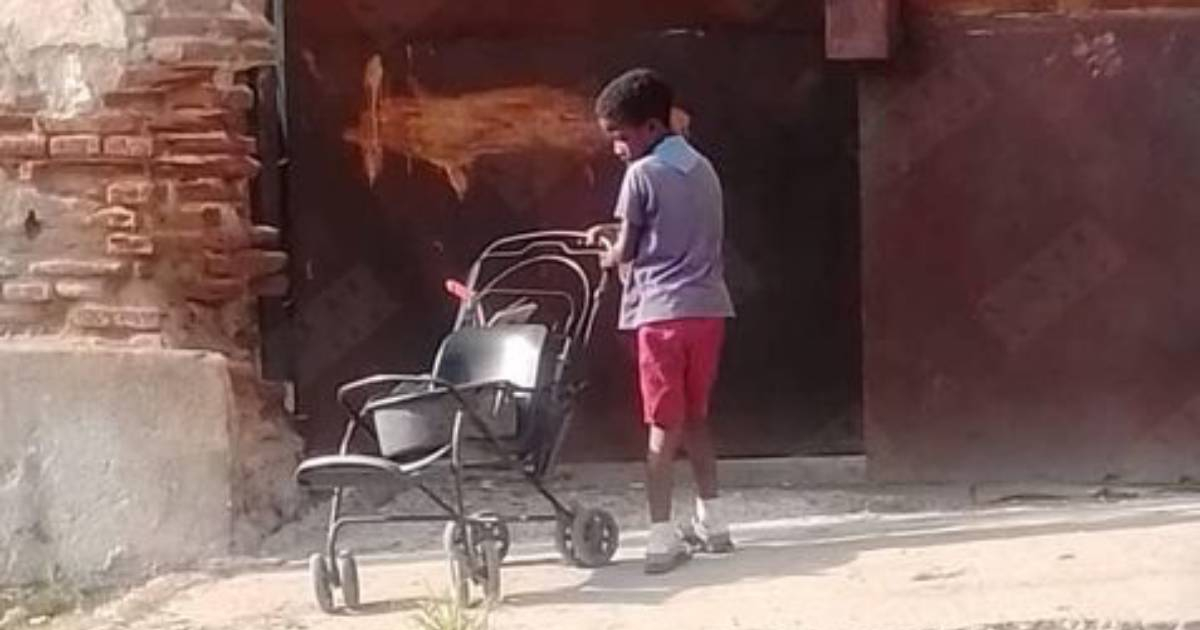A young Cuban boy, approximately 10 years old, is earning a living by selling avocados in Santiago de Cuba to help his family make ends meet. Independent journalist Yosmany Mayeta Labrada brought attention to this touching case that has moved many residents of Santiago.
The boy, who is currently attending primary school, was seen selling avocados on Santa Rita Street, between Barracones and Callejón Santiago, right in the heart of the city. He was offering the avocados for 40 pesos in national currency, a stark image that underscores the harsh reality faced by many Cuban families.
A follower of Mayeta captured the moment in a series of photos and decided to support the child by buying five avocados, even though he didn't need them. "I wasn't going to buy any because I already have avocados, but I gave him the money for five because seeing him broke my heart," admitted the young man who made the charitable gesture.
The scene has struck a chord with those familiar with Cuba's economic challenges, where an increasing number of children, instead of being in school or enjoying their childhood, are forced to hit the streets to contribute to their family's finances. Many of these minors, sometimes without their parents' knowledge or consent, seek ways to help at home, pushing carts or selling goods under the scorching sun.
Complex Family Situations and Government Policies
Yosmany Mayeta urged in his message not to blame the parents for these situations involving minors, as each case is unique and marked by complex family histories. In his view, the rise in extreme poverty due to the government's flawed policies is at the core of this social issue.
The soaring prices of basic necessities such as food, hygiene products, clothing, and shoes have left many families in a predicament where, despite their sacrifices, they cannot provide adequately for their children.
Ultimately, the journalist called on non-governmental organizations (NGOs) operating in Cuba to find solutions that prevent children from leaving their studies to work. "I will never ask for money to help a child, but I urge NGOs to take action. We need to stop child labor in Cuba," he concluded.
This case echoes another recent report of child labor in Cuba, involving a boy in Camagüey forced to sell tamales to support his family because his mother left the country and his father is about to follow suit. He is only cared for by his grandmother.
The increase in child labor in Cuba is an alarming issue that continues to worsen. The government's promises to eradicate this scourge, made decades ago, seem to have vanished, while the country's reality forces many minors to find ways to survive.
Understanding Child Labor in Cuba
In light of the increasing child labor cases in Cuba, here are some frequently asked questions to provide more context and understanding of this critical issue.
Why are children in Cuba forced to work?
Many children in Cuba are forced to work due to extreme poverty and the economic hardships faced by their families, exacerbated by the government's flawed policies.
What kinds of work are Cuban children doing?
Cuban children are often seen selling goods like avocados or tamales, pushing carts, or performing other street vending activities to help support their families.
What can be done to combat child labor in Cuba?
Non-governmental organizations (NGOs) and international bodies need to take action to provide support and solutions that prevent children from having to work and ensure they can stay in school.
How has the Cuban government responded to child labor?
Despite promises made decades ago to eradicate child labor, the Cuban government has largely failed to address the issue effectively, leaving many children in dire situations.
